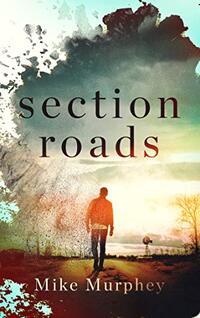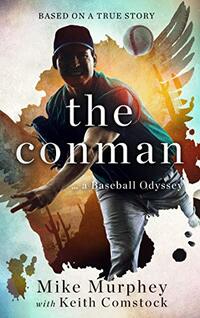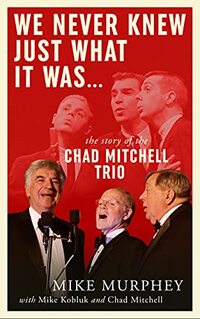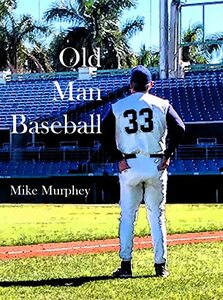Mike Murphey Interview Published on: 08, Nov 2024
 You had a successful career as a journalist before turning to fiction writing. What inspired you to make that transition, especially after three decades in journalism?
You had a successful career as a journalist before turning to fiction writing. What inspired you to make that transition, especially after three decades in journalism?
I think every print journalist thinks they have a novel in them, and I was no different. The last 17 years of my career I worked at a newspaper that had spawned several successful novelists, but when I sat down to write, I could produce nothing more than a short story. I decided the novelist gene was something I just didn’t have. When I turned 60, I decided to give it one more try. I determined to write 500 words a day and not agonize over whether they were good or bad. I would just put at least 500 words on pages. And eventually, that worked.
Your novels span different genres, from baseball odysseys to physics and satire. How do you navigate these diverse themes in your writing?Again, I think that goes back to my journalism experience. Newspaper work fosters a broad range of interests. Journalists end up knowing a little about a whole lot of things.
Could you tell us about your journey to becoming a published author? What were some of the challenges you faced along the way?My agent rejections are many. I chose the hybrid publishing route, and for the most part, I’m happy with that. Finding an audience in the current glut of titles is a much bigger challenge than the writing. As for the writing itself, when I first approached fiction, my biggest block was that I thought I had to know the ending before I started. I thought I had to have a map. And I know many experts preach both those things. My brain just didn’t work that way, though. When I forced myself to just write, I found that the story would lead me.
Your Physics, Lust and Greed series explores complex themes. What draws you to blend science with human nature in your storytelling?My high school physics instructor is responsible for my fascination with that science. I was not a good physics student because I struggled with the math. But as he patiently helped me through that maze, he inspired me with the romance of physics—time travel, Schrodinger’s Cat, quantum entanglement, which Einstein called “Spooky action at a distance", The goofy realities of quantum mechanics light the fires of imagination
In your novel "The Conman ... A Baseball Odyssey," you delve into the world of baseball. How did your personal experiences influence this book?After leaving journalism, I was fortunate enough to feed my passion for baseball by participating in a company that produced Seattle Mariners and Oakland A’s adult baseball fantasy camps. That resulted in relationships with a number of former Major League players including Keith Comstock, a very funny man who had a long a difficult climb to finally pitch in the majors. His story was just begging for a book.
Your novel "Section Roads" is set in rural New Mexico. How did your upbringing in eastern New Mexico shape your storytelling?It had everything to do with it. New Mexico is a beautiful state, but I grew up on the bleak high plains of Eastern New Mexico, which, culturally, might as well be west Texas—a place shrouded in conservatism and, back then, bigotry. Two weeks after graduating from high school, I went across the state to Las Cruces and New Mexico State University. I left a girlfriend with whom I through I shared a destiny. That summer I read a book “Red Sky at Morning” by a New Mexico author named Richard Bradford. It’s a beautiful coming-of-age book dealing with the funny, bittersweet relationship between a boy and a girl fated to different paths. I decided then that if I ever wrote a book, I’d write a book like that.
Among your novels, which character do you resonate with the most, and why?Cullen Molloy in Section Roads. There’s a lot of biography in that book.
Humor and satire are prominent in your writing, evident from your awards. How do you balance humor with more serious themes in your novels?Honestly, I don’t know. My biggest influences are Douglas Adams, Christopher Moore and Tom Robbins who are all masters of humor and adept at weaving all that into more serious themes. It just sort of happens. When I go back and read my books, I often wonder who wrote this.
You split your time between Spokane, Washington, and Phoenix, Arizona. How do these locations influence your writing?I find myself most creative in warm, comfortable climates. I don’t have to swelter through Phoenix summers, of freeze through Spokane’s grey winters.
Your novel "Quantum Consequence" explores intriguing scientific concepts. How do you approach researching and integrating science into your fiction?I try to have enough understanding of the concepts to make them in some fashion believable, but I don’t want “hard science fiction” to bog down the stories. I read a lot of articles related to quantum mechanics that I certainly don’t understand in any depth, but allow me to keep things at least a little bit on track.
As an "old-man baseball player," how does your passion for the sport influence your writing, especially in your baseball-themed novels?My love for baseball dictated that I would write a baseball novel. I’m not sure I’ll write another one. I am trying to learn screenwriting, though, and am collaborating with some film industry people on turning my short story-- “Old Man Baseball”--into a short or feature-length film. Like everything else about commercial success, it’s a long shot. But I don’t mind betting on myself.
What advice would you give to aspiring authors, particularly those who are considering a career shift like you did later in life?Just sit down and write. There are many opportunities for publication nowadays, and many editors and publishers who can help you along the way. But only you can do the writing.
You've received numerous book honors, including the grand prize in humor and satire. How have these accolades impacted your writing career?I’ve mentioned the marketing challenges we face in a world with 6 million new titles each year. One of the few paths to recognition is in the competition of contests. We must embrace any validation we can get.
Are there any new projects or genres you're currently exploring or planning to explore in your future writing?I am working on a sixth novel in the Physics, Lust and Greed Series, but as I mentioned, I am delving into screenwriting. Besides the Old Man Baseball project, in partnership with experienced screenwriters and producers, we are working with a company called Voyage Media on writing a pilot and production package for a Tales of Physics, Lust and Greed streaming series, and in a separate project, a limited series treatment of Section Roads.
How did you first come across the AllAuthor website? What do you like or dislike about the site?Primarily through the internet in researching marketing groups.
Share Mike Murphey's interview
Mike Murphey, a native of eastern New Mexico, spent nearly thirty years as an award-winning newspaper journalist across the Southwest and Pacific Northwest. At 60, he rekindled his dream of writing novels and has since authored several books. His books have earned over thirty honors, including the grand prize in the humor and satire category at the Chanticleer National Book Awards.










